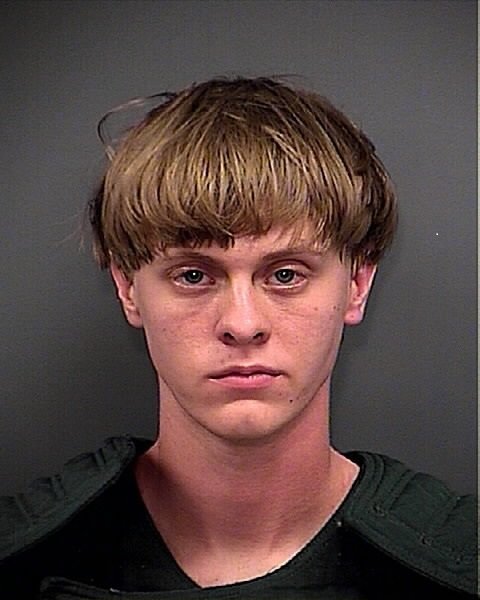Walk past the Emanuel AME Church in Charleston, past the Gothic building and onto the streets, and you see a city in grief.
Bouquets of flowers sit outside, their colorful petals withering in the summer heat. Flickering candles line the sidewalks, their glow bright amid the city’s darkest moments.
In a South Carolina city known for its tolerance of all religious denominations came a massacre so shocking, residents don’t know how to react.
They’re calling for justice, but also asking for peace. Some are indignant, some are resigned.
They stand in prayer circles as strangers hug and bagpipes wail “Amazing Grace.” They weep and ask why.
After a white man allegedly killed nine people at one of the nation’s oldest African-American churches, a stunned and heartbroken community is struggling with a flood of emotions: anger, sadness, resilience.
SHOCK
The hardest thing about standing outside the church now, Tiffany Bonaparte said, is seeing so many people streaming by without stopping.
“People are just continuing like it’s a normal night in Charleston,” Bonaparte (pictured left) said Thursday night.
Not for her. Bonaparte, 27, was stunned to learn that Myra Thompson, a close family friend, had been killed.
“She was just a really warm, kind, inviting person,” Bonaparte said. “She had just done her trial sermon. She was very excited to become a pastor.”
Brae Richardson, 23, said the community lost more than a church. It lost an institution.
“This has been my family church since I was born,” said Richardson (right). “I feel angry, because I know these people were welcoming with open arms.”
Ken President, 31, tried to get to the spot where he buys a snack every day, just down the street from the church. But the area was a crime scene, swarming with officers.
“It was so close. It hit straight home,” the electrician said.
As he looked around him, horrified, a white woman walked over and asked if she could shake his hand. She took a picture of their hands together, then got in a car and drove away.
SADNESS
On any other day, the church is the site of weddings, Bible studies and baptisms. This week is a far cry from them all.
“It’s incredibly devastating,” said Chris Gardner, 32. “I’m just confused why something like this would happen here, in such a joyous place.”
After the massacre, Phalarma Freeman sought solace in her faith. A prayer service Thursday night brought her some comfort.
“I know so many people that go to this church,” she said. “We now know that the Lord is in our midst.”
Demekius Richardson Jr., 10, Ja’mycal Richardson, 9, and Talik Brown, 10, came to the church to leave flowers for librarian Cynthia Hurd, who was killed in the shooting.
“It was a hate crime. I guess he hated blacks,” Demekius said. “She gave us candy. She helped us on the computer.” Ja’mycal said of Hurd, “She would just help us with whatever we needed.”
RAGE
The roots of Emanuel run deep in Charleston. Its history is one of perseverance in the face of racial hostility.
It was borne of discrimination, burned to the ground in hate, and rose again.
The Wednesday night attack is just the latest incident of racism against African-Americans. And it’s time for the nation to address it, some said.
“There ain’t time to cry. It’s time to change,” said Stephen Grant, 32. “It’s time to step up by destroying racism.”
Dearrick DeSaussure, 58, said attacks against African-Americans are occurring too often.
“I’m trying to get over the shooting of Walter Scott and now we’re getting hit with this hand grenade, this atomic bomb. How do you explain this to yourself? This was a racially motivated shooting. It wasn’t a gas leak,” said DeSaussure, a special education teacher who remembers coming to this church with his grandmother as a child.
He said he’s feeling emotionally drained.
“There’s anger. There’s frustration There’s bewilderment,” he said. “Because it’s home.”
Carl Davis, 56, said he went though a range of emotions.
“My first reaction was shock and disbelief. Then it turned to anger,” he said.
RESILIENCE
As a heartbroken community tries to heal, strangers and friends alike are finding ways to help one another.
“The actions of one person don’t reflect this town,” said Gardner ( right).
Reaching out and connecting with others is important, Tracey Pickard, 46, said. And she did her part. As soon as she learned that librarian Cynthia Hurd was among the victims, she gathered her neighbors and took them to buy bouquets of flowers to leave outside the church.
“My immediate gut reaction was to get out and just smile at somebody and be able to talk about it,” she said.
The building contractor stopped by the church, together with several children, and left flowers.
They sat in a pile among bouquets of all colors, a quiet reminder of strangers united in grief.



